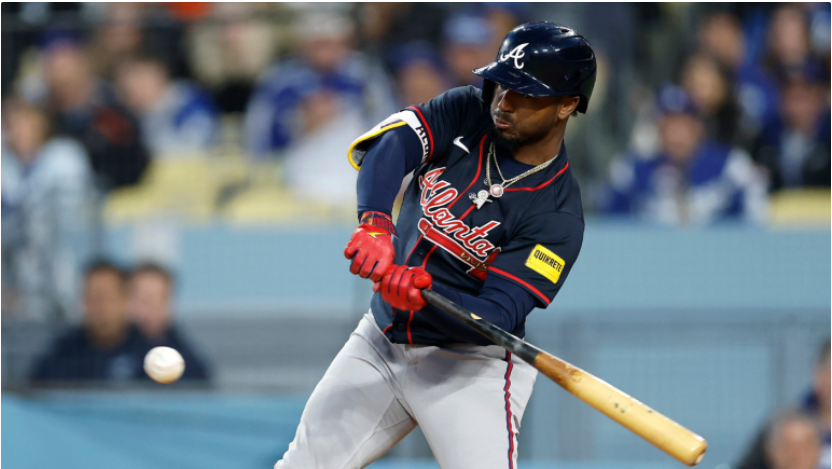Sports
Braves’ 2025 Nightmare Start: Breaking Down Atlanta’s Historic 0-7 Collapse
1. A Historic Hole: How the Braves Dug Themselves Into 0-7
The Braves’ 2025 campaign kicked off not with optimism, but with shock and confusion. Losing all seven of their opening games, including a crushing sweep by the Phillies and another by the Diamondbacks, they became the first defending division champions since the 1998 Mariners to start a season 0-7.
What’s worse, their losses haven’t just been close calls. The Braves have looked overmatched, unmotivated, and mechanically flawed. Despite a star-studded roster, the team has failed to exhibit any consistency in offense, defense, or pitching. With mounting pressure from media, fans, and internal voices, this winless start has become both a statistical anomaly and a psychological burden.
There’s no sugarcoating it: An 0-7 start all but guarantees a fight uphill. Historically, teams that begin with five or more consecutive losses have only a 5.5% chance of making the postseason. Seven straight? That’s uncharted territory for playoff hopefuls.

2. Silent Bats: An Offense That’s Forgotten to Score
The Braves’ 2025 lineup was supposed to be a juggernaut. With Ronald Acuña Jr., Austin Riley, Matt Olson, and Ozzie Albies all healthy and returning, the team had high hopes for a powerful start. Instead, their offensive output has been stunningly absent.
In those seven losses, the Braves averaged just 2.3 runs per game. Their batting average with runners in scoring position (RISP) has hovered around a dreadful .130, reflecting not only missed opportunities but also mental fatigue and pressing at the plate. Acuña, expected to be the tone-setter, has looked uncomfortable, often swinging early in counts and chasing pitches out of the zone.
Olson, who crushed over 50 home runs last season, has yet to hit one out of the park. Riley and Albies have been similarly muted. The team’s OBP ranks near the bottom of the league, and their slugging percentage tells a story of hard contact that just isn’t happening.
To make matters worse, opposing teams have begun to exploit the Braves’ aggressive approach at the plate, relying on off-speed pitches and working the corners. Without adjustments, the offense may continue to falter regardless of raw talent.
3. Pitching Woes: From Staff Strength to Rotational Ruin
Equally troubling has been the Braves’ pitching staff. What was once considered one of the most formidable rotations in the league has suddenly turned into a glaring weakness. Injuries, underperformance, and shaky relief outings have all played their part.
Most notably, veteran starter Reynaldo López, who was expected to provide solid middle-of-the-rotation value, has been sidelined indefinitely due to a shoulder injury. His absence not only removes a reliable arm but forces manager Brian Snitker to reshuffle the rotation prematurely.
Max Fried and Spencer Strider, typically the aces of the staff, haven’t been able to deliver. Strider’s command has wavered, and Fried has struggled to get past the fifth inning, placing an undue burden on the bullpen.
That bullpen, by the way, has not held up. Closers and setup men alike have allowed late-game runs, and inherited runners are scoring at an alarming rate. In several games, the Braves have led or been tied entering the seventh inning, only to watch the game unravel.
Without a dependable rotation and a bullpen that can protect leads, the Braves’ chances of recovering from their early slump diminish drastically. Depth options from the minors may offer some hope, but the margin for error is thinning.
4. Unsettled Clubhouse and Unexpected Distractions
As if poor performance weren’t enough, the Braves have had to deal with off-field issues that have further derailed their focus. The most jarring of these came with the sudden 80-game suspension of utility outfielder Jurickson Profar for testing positive for a banned substance.
Profar, while not a core starter, played a key role as a clubhouse leader and versatile defender. His absence has not only weakened the bench but also introduced a media circus that the team was not prepared to handle.
Behind the scenes, sources have suggested some tension in the clubhouse as frustration boils over. Younger players are pressing, veterans are overcompensating, and the coaching staff has yet to find a way to settle the team emotionally.
Manager Brian Snitker, one of the most respected minds in baseball, has a monumental challenge ahead. Holding this team together mentally while also finding on-field solutions is perhaps the hardest test of his storied career.
If there’s one silver lining, it’s that adversity often forges identity. The Braves still have time to redefine their narrative, but the locker room must become a place of unity rather than distraction.
5. The Road Ahead: Can Atlanta Make History?
So where do the Braves go from here?
Statistically, the odds are grim. But baseball has always been a sport of streaks, comebacks, and second chances. For Atlanta to defy the odds and reach the postseason, they must begin by fixing the fundamentals: timely hitting, consistent starting pitching, and airtight bullpen execution.
Ronald Acuña Jr. must return to MVP form, and Olson, Riley, and Albies need to rediscover their power strokes. The return of López later in the season could provide a lift, but until then, depth arms must step up.
The front office may need to act quickly—adding a reliever or even shaking up the batting order—to inject life into this team. The upcoming homestand will be critical. Winning 8 out of their next 10 would put them back in the playoff hunt and shift the narrative.
Most importantly, the Braves need belief. Belief that seven games don’t define a season. Belief that talent still trumps trends. And belief that history, while daunting, is not destiny.
From: Prettyteesus
